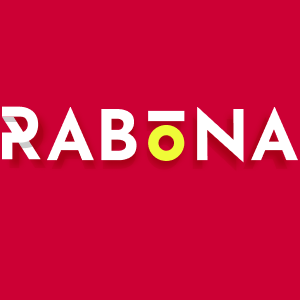Το Rabona μπορεί να είναι ένα σχετικά νέο διαδικτυακό καζίνο, που ιδρύθηκε μόλις το 2019, αλλά έχει κάνει εντύπωση ενός από τους κορυφαίους διαδικτυακούς ιστότοπους που σχετίζονται με το online τζόγο στον κόσμο. Δεν είναι απίστευτο, καθώς η εταιρεία πίσω από αυτό, η Rabidi NV, διαχειρίζεται περισσότερες από 14 διαδικτυακές ιστοσελίδες με τυχερά παιχνίδια.
Ας δούμε τι έχει να προσφέρει αυτός ο ιστότοπος στους Έλληνες παίκτες.
Rabona Casino: με λίγα λόγια
| Ιδιοκτήτης | Rabidi N.V. | Υποστήριξη πελατών | Live chat / email |
| Έτος ίδρυσης | 2019 | Μπόνους εγγραφής | 100% έως €500 + 200 Δωρεάν Περιστροφές |
| Διαθέσιμα παιχνίδια | Κουλοχέρηδες, επιτραπέζια, ζωντανά, αθλητικά στοιχήματα | Όρια ανάληψης | €7.000 το μήνα €500 την ημέρα |
| Διαθέσιμο σε | Android, iPhone, Windows Phone, iPad, Mac / PC, Tablet | Ελάχιστη κατάθεση | €10 |
| Άδεια λειτουργίας | Kahnawake Curacao | Χρόνος ανάληψης | 1-2 μέρες |
| Σύνολο παιχνιδιών | 3000+ | Επιλογές ανάληψης | 12 Visa / Mastercard, MyFinity, Neteller κα. |
| Πάροχοι | 100+ | Επιλογές κατάθεσης | 13 Lunu, Visa / Mastercard, MyFinity, Neteller κα. |
| Ιστότοπος στα Ελληνικά | ❌ | Κρυπτονομίσματα | ✅ |
Rabona Casino: διασκέδαση χωρίς τέλος
Το Rabona Casino θα καλύψει όλες τις στοιχηματικές ανάγκες των οπαδών των αθλητικών στοιχημάτων και των παικτών του καζίνο. Η πλατφόρμα έχει τα πάντα καλυμμένα με επιλογή σε αφθονία, επομένως όλες οι προτιμήσεις μείνουν ικανοποιημένες. Το καζίνο προβάλλει όρια στοιχημάτων για κάθε είδους του προϋπολογισμού, με μπόνους και ανταμοιβές που θα ευχαριστήσουν όλους. Επιπλέον, ο χειριστής αποδέχεται μια ποικιλία επιλογών πληρωμής fiat και κρυπτονομισμάτων, έτσι ώστε οι χρήστες που γνωρίζουν την τεχνολογία να μπορούν να επωφεληθούν από τις πληρωμές σε Bitcoin και άλλα νομίσματα.
Rabona Casino: πλεονεκτήματα και μειονεκτήματα
| Πλεονεκτήματα | Μειονεκτήματα |
| Άπειρες επιλογές στοιχηματισμού | Θα προτιμούσαμε ο ιστότοπος να υποστηρίζεται και στα Ελληνικά σε σύντομο μέλλον |
| Πολλά τουρνουά | Τα όρια αναλήψεων θα μπορούσαν να είναι υψηλότερα για του κανονικούς παίκτες |
| Μεγάλο χαρτοφυλάκιο με παιχνίδια και παρόχους | |
| Μπόνους εγγραφής για κρύπτο καταθέσεις | |
| Γρήγορες αναλήψεις |
Μπόνους και προσφορές στο Rabona Casino
Το Rabona Casino διαθέτει μια καλή επιλογή από μπόνους και προσφορές. Η σελίδα προώθησης περιέχει προσφορές επαναφόρτωσης εβδομάδας, δωρεάν περιστροφές, επιστροφές μετρητών έως και 25% σε παιχνίδια με ζωντανούς ντίλερ.
Συμπληρωματικά, το καζίνο θα στέλνει τις προσωπικές προσφορές κατευθείαν στο email σας, επομένως αξίζει να φροντίσετε να ελέγχετε τακτικά το εισερχόμενά σας.
Μερικές προσφορές περιλαμβάνουν:
| Μπόνους εγγραφής | 100% έως €500 + 200 Δωρεάν Περιστροφές και ένα Μπόνους Καβούρι |
| Μπόνους εγγραφής για του παίκτες κρυπτονομισμάτων | Έως 100 mBTC + 100 Δωρεάν Περιστροφές και ένα Μπόνους Καβούρι |
| Επαναφόρτωση του ΣΚ | Έως €700 και 50 Δωρεάν περιστροφές |
| Κυριακάτικο Κυνήγι για Δωρεάν Περιστροφές | Έως 100 Περιστροφές στο Spinanga της ELA Games |
Πρόγραμμα Πιστότητας
Το Rabona Casino διαθέτει ένα πρόγραμμα VIP πέντε επιπέδων που ξεκινά από τον αρχάριο και τελειώνει στο Legend. Όταν στοιχηματίζετε στα παιχνίδια με πραγματικά χρήματα, θα συγκεντρώνετε πόντους VIP. Μόλις κερδίσετε αρκετούς πόντους, θα προχωρήσετε στα επίπεδα και θα ξεκινήσετε να ξεκλειδώνετε τα προνόμια.
Ως παίκτης VIP, θα λαμβάνετε ειδικές προσφορές, θα απελαύνετε υψηλότερα όρια ανάληψης, προσωπικό διαχειριστή λογαριασμού και επιστροφή χρημάτων έως και 15% σε όλες τις απώλειες.
Συναλλαγές στο Rabona Casino
Το Rabona Casino κάνεις τις αναλήψεις και τις καταθέσεις εύκολη υπόθεση για όλους. Το καζίνο δέχεται όλες τις αξιόπιστες χρεωστικές και πιστωτικές κάρτες και κορυφαίες υπηρεσίες eWallet όπως το Neteller και το MyFinity, ενώ υπάρχουν επίσης πολλά ψηφιακά νομίσματα, όπως Bitcoin, Litecoin, Ethereum, Dogecoin και άλλα.
Υπάρχει μια ξεχωριστή ενότητα με πληρωμές όπου μπορείτε να δείτε την ανάλυση των ορίων συναλλαγών και του χρόνου επεξεργασίας των συναλλαγών. Επιπλέον, το καζίνο δεν χρεώνει τέλη επεξεργασίας για καταθέσεις και αναλήψεις.
Ετυμηγορία
Το Rabona Casino έχει εισέλθει στην αγορά τυχερών παιχνιδιών με μια σοβαρή προσφορά σε παιχνίδια καζίνο και αθλήματα. Ο ιστότοπος δεν αφήνει τίποτα να λείπει στους πελάτες του, και είναι γεμάτος με χιλιάδες από τα καλύτερα παιχνίδια διαδικτυακού καζίνο, γενναιόδωρες προσφορές μπόνους, προνόμια VIP, τακτικά τουρνουά και πολλά άλλα.
Το φιλικό προς τα κρυπτονομίσματα καζίνο είναι γεμάτο με επιλογές πληρωμής και η ομάδα υποστήριξης πελατών διατηρεί τα πράγματα ομαλά. Εκτός άλλων το καζίνο είναι πλήρως συμβατό με φορητές συσκευές και γίνεται προσβάσιμος ανεξαρτήτως που βρίσκεστε, αρκεί να έχει καλή σύνδεση στο διαδίκτυο.



